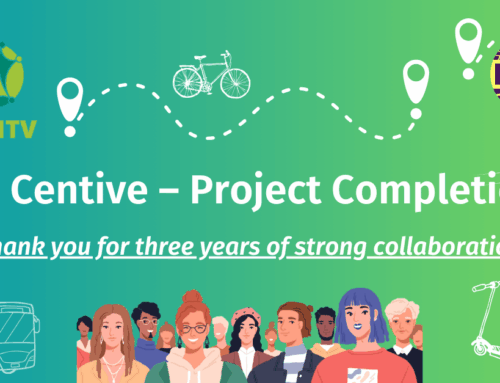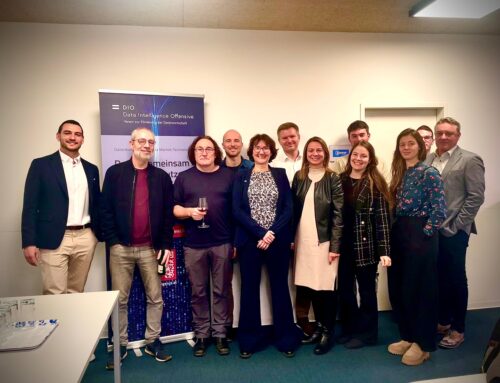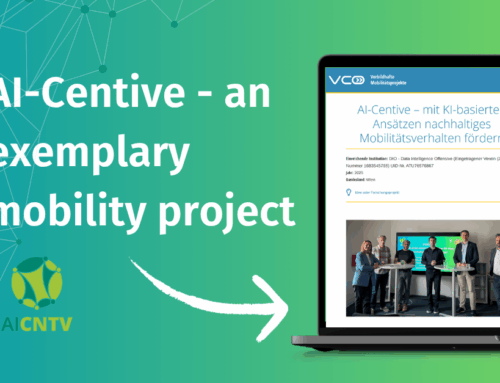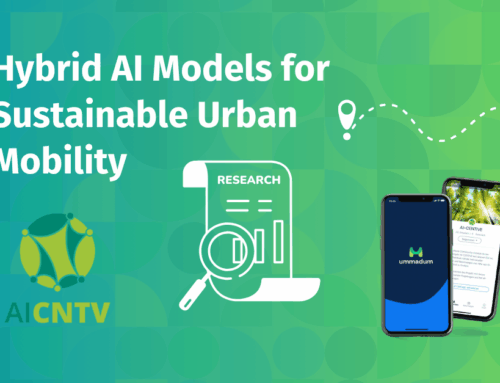On October 14, experts and innovators gathered for the AI-CENTIVE Workshop, an interactive session exploring how artificial intelligence can advance sustainable mobility. Hosted by Data Intelligence Offensive and moderated by Astrid Gühnemann from BOKU University and Arno Scharl from webLyzard technology, the event combined live demonstrations, open discussions, and hands-on feedback on the AI-CENTIVE Dashboard.
The atmosphere was open and collaborative – a space where technology met creativity, and research met real-world application.
A Shared Vision for Smarter Mobility
AI-CENTIVE is a research project designed to harness the power of artificial intelligence to better understand and predict mobility behavior and to develop data-driven incentives that promote more sustainable choices. By combining expertise from transport science, data analytics, and environmental research, the project uses a specified dashboard that strengthens planning, transparency, and communication in the mobility sector.
The Dashboard: Turning Data into Insight
The centerpiece of the workshop was the AI-CENTIVE Dashboard, a visual analytics platform that turns data from diverse sources into clear insights.
In his live demonstration, Arno Scharl showcased how the Dashboard serves as a visual search engine for heterogeneous data sources – tracking public discussions, campaign performance, and stakeholder engagement in real time.
Using the “Österreich radelt” (“Austria Cycles”) campaign as an example, participants saw how peaks and trends in public discourse can be identified and visualized geographically. The integration of GeoSphere Austria weather data enables exploration of correlations between rainfall and mobility behavior, while sentiment analysis highlights how the public perceives sustainable transport initiatives.
The result is a powerful decision-support tool for mobility providers, NGOs, and policymakers — anyone who values transparency and insight into public mobility debates.
The Storypact Editor
Another highlight was the introduction of the Storypact Editor and its AI toolbox to turn insights from the dashboard into clear communication. The AI Toolbox suggests relevant keywords, generates short summaries, and reveals topic connections. Building on this, the Storypact Editor automatically transfers the AI summary from the dashboard into an interactive editing environment, where users can quickly refine and publish mobility insights.
Together, they bridge the gap between analytics and storytelling — making data-driven communication faster, consistent, and aligned with the Sustainable Development Goals (SDGs).
Participant Insights and Discussion
The workshop encouraged open dialogue and participants to share their perspectives.
Discussions centered on how to use the dashboard for campaign monitoring, market analysis, and policy design. Feedback emphasized usability, clarity, and the potential for benchmarking between mobility solutions.
As one participant noted, “It’s not just about data — it’s about understanding the story behind it.”
Collaboration, Feedback, and What Comes Next
All participants received a free login to test the Dashboard and Storypact editor hands-on and were invited to share their feedback through a short BOKU-hosted survey. The insights gathered will directly shape the next iteration of the platform — ensuring it continues to meet the needs of its growing user community.
The workshop concluded with an outlook on the upcoming AI-CENTIVE Final Event on November 19, where the project team will present key results, showcase the use of AI-based mobility incentives, and demonstrate new features that connect data, behavior, and sustainability.
Join the Movement
AI-CENTIVE continues to evolve as a collaborative ecosystem — one where data scientists, mobility planners, and communication experts work side by side.
Join us on November 19 to discover how AI can help turn data into action — and insights into sustainable change.




